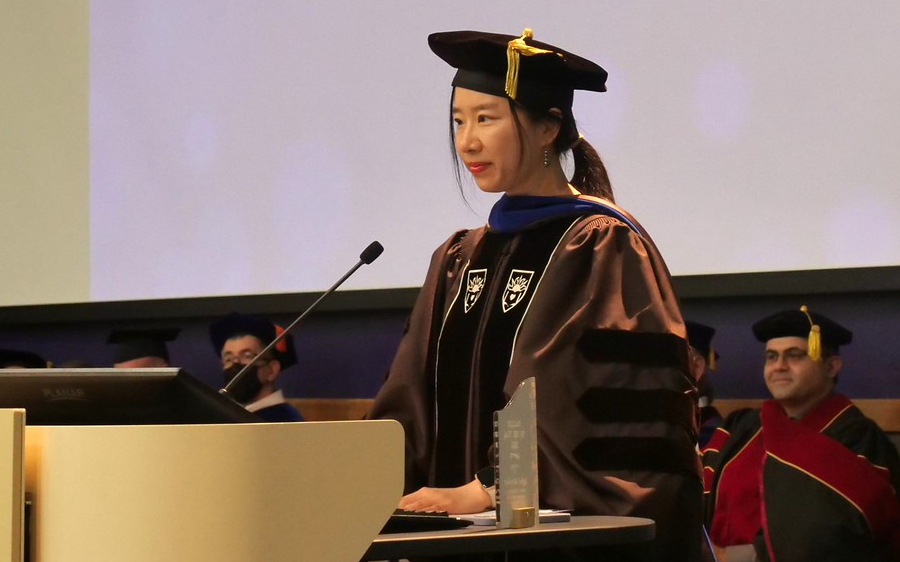
Win-Win-Win for Global Platforms
This Section's arrow_downward Theme Info Is:
- Background Image: ""
- Theme: "light-theme"
- Header Style: "purple_dominant"
- Card Height Setting: "consistent_row_height"
- Section Parallax: "0"
- Section Parallax Height: ""
When I sat down with Milgard’s own Dr. Luna Zhang, MSBA Professor of Analytics, to talk about platforms, monopoly power, barriers to entry, innovation and antitrust legislation, it dawned on me that our interview could not have been possible without Zoom. Possibly the most essential platform of the pandemic, allowing millions to check in with their doctor, friends and relatives, learn from their teacher or meet with employees and customers. Progress was possible from the safety of our homes. And for most, Zoom was simply free with an internet connection. A cyber gift!
But wait. This article is about revenue sharing. I must admit being thoroughly intimidated by the analytic expressions published in their comprehensive document entitled “Fending Off Critics of Platform Power with Differential Revenue Sharing: Doing Well by Doing Good?” Luna, a natural teaching professor, generously helped me understand the formula they describe as SBO small-business oriented revenue sharing designed to inject fairness. Which has the effect of leveling the playing field between consumers, producers/creators and the mega platforms.

Looming large are the players we’re all familiar with, Apple, Google, Amazon each achieving enormous popularity and with that monopoly power. Breaking all records as the world’s largest, wealthiest businesses, with no end in sight.
Win Win Win
Many of us remember Google’s early promise to do “no evil.” Google likely knew from the start their potential dominance could attract attention from regulators. Now during and after Covid, most households have come to rely on the many things Amazon provided safely with zero concern or risk of human to human contact. Most of us wonder what we would have done without Amazon. It’s become essential and we don’t want to even think about life without it. Each of these giants have faced years of potential antitrust legislation, designed to insert fairness. But how? No publicly-traded company wants to put their stock value at risk.
Luna and her co-authors, Kitty Wang, and Hemant Bhargava, believe a win-win solution lies in an adjusted revenue sharing model. And their SBO scheme or model presents their proof. If the platforms share the wealth everyone wins, innovation is inspired, monopoly power is mitigated, producers and consumers can continue to enjoy the benefits their favorite platforms deliver.

Warning, you likely need a degree in Analytics to consume the formulas!
LINK TO THE ARTICLE:
Fending off Critics of Platform Power with Differential Revenue Sharing: Doing Well by Doing Good?
Win-Win-Win for Global Platforms
Consumer Behavior has always interested Dr. Luna Zhang, Milgard School of Business, MSBA Professor of Analytics. In her new paper she details evolving revenue sharing models that could benefit consumers, producers and platforms. Plus, fend off threats from FTC regulation.
